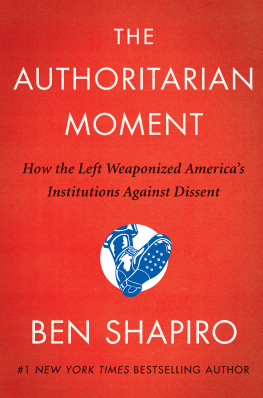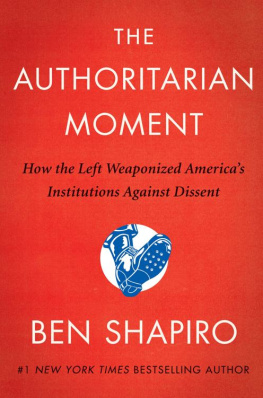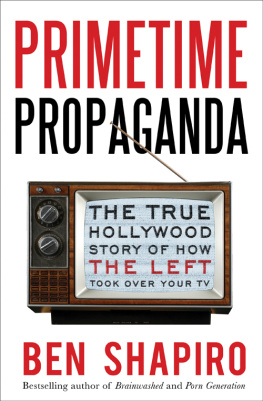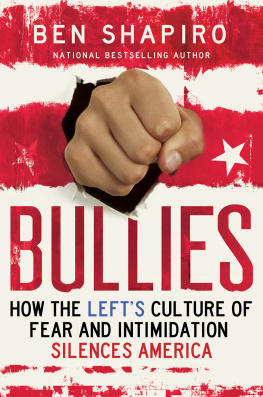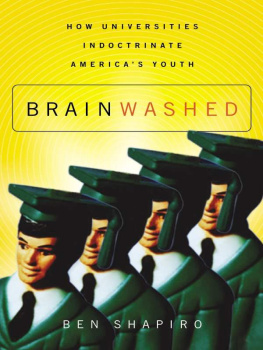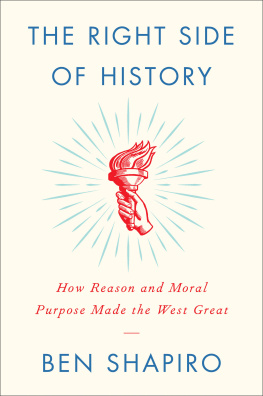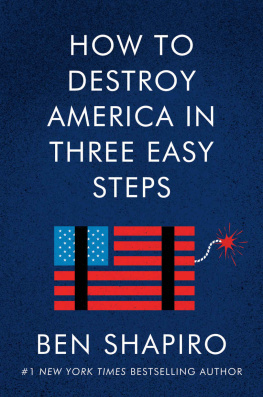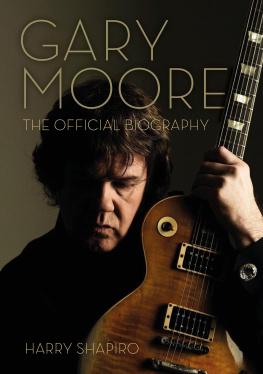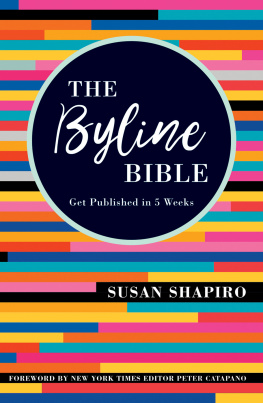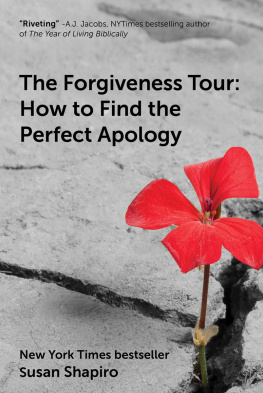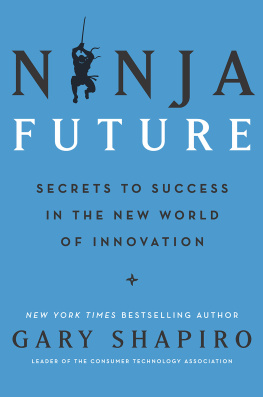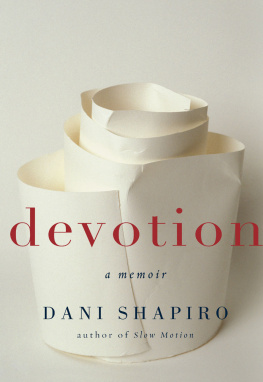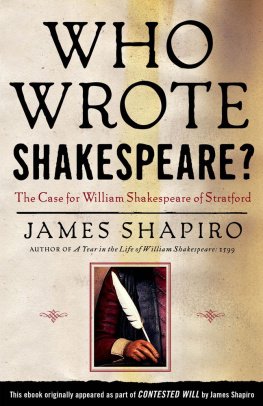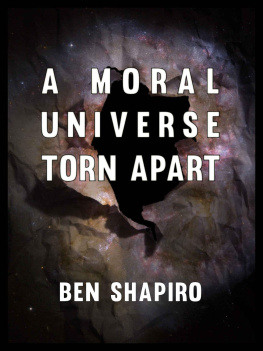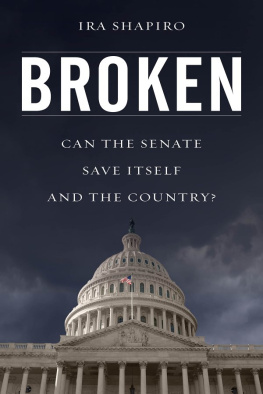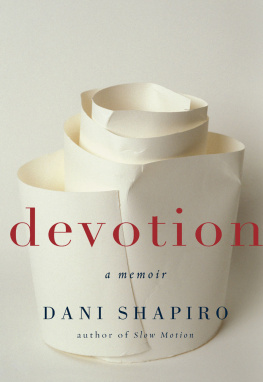Ben Shapiro - Seven Questions
Here you can read online Ben Shapiro - Seven Questions full text of the book (entire story) in english for free. Download pdf and epub, get meaning, cover and reviews about this ebook. year: 2020, publisher: Broadside e-books, genre: Politics. Description of the work, (preface) as well as reviews are available. Best literature library LitArk.com created for fans of good reading and offers a wide selection of genres:
Romance novel
Science fiction
Adventure
Detective
Science
History
Home and family
Prose
Art
Politics
Computer
Non-fiction
Religion
Business
Children
Humor
Choose a favorite category and find really read worthwhile books. Enjoy immersion in the world of imagination, feel the emotions of the characters or learn something new for yourself, make an fascinating discovery.
- Book:Seven Questions
- Author:
- Publisher:Broadside e-books
- Genre:
- Year:2020
- Rating:4 / 5
- Favourites:Add to favourites
- Your mark:
- 80
- 1
- 2
- 3
- 4
- 5
Seven Questions: summary, description and annotation
We offer to read an annotation, description, summary or preface (depends on what the author of the book "Seven Questions" wrote himself). If you haven't found the necessary information about the book — write in the comments, we will try to find it.
Seven Questions — read online for free the complete book (whole text) full work
Below is the text of the book, divided by pages. System saving the place of the last page read, allows you to conveniently read the book "Seven Questions" online for free, without having to search again every time where you left off. Put a bookmark, and you can go to the page where you finished reading at any time.
Font size:
Interval:
Bookmark:
To my children, who deserve to grow up in a country that values the freedoms promised by the Declaration of Independence and guaranteed by our Constitution
A ccording to the institutional powers that be, America is under authoritarian threat.
That authoritarian threat to America, according to the Democratic Party, establishment media, social media tech bros, Hollywood glitterati, corporate bosses, and university professors, is clearand it comes directly from the political Right.
And that authoritarian threat, according to those who control vast swaths of American life, manifested itself most prominently on January 6, 2021.
On that day, hundreds if not thousands of rioters broke away from a far larger group of pro-Trump peaceful protesters and stormed the United States Capitol, many seeking to do violent harm to members of Congress and the vice president of the United States. Their goal: to overturn the legally constituted results of the 2020 election.
The images from January 6 were indeed dramaticand the rioters of January 6 did indeed engage in acts of criminal evil. Pictures of barbarians dressed in buffalo horns and idiots carrying Trump flags and military gearclad fools carrying zip cuffs made the front pages globally. Sitting congresspeople and the vice president of the United States were rushed to safety, shielding themselves from the droogs beyond.
All Americans of goodwillon all political sidesdecried the January 6 riots. Vice President Pence personally oversaw the counting of the electoral votes; Senate Majority Leader Mitch McConnell (R-KY) condemned the rioters as vile cretins, then moved forward to the certification of the election.
But according to the Left, the January 6 riots werent merely an act of universally condemned criminality. They were the culmination of right-wing authoritarianism. Jonathan Chait of New York magazine wrote, We entrusted a sociopathic instinctive authoritarian with the most powerful office in the world. What did we think would happen?
If you voted for Trump, said Don Lemon of CNN, you voted for the person who the Klan supported. You voted for the person who Nazis support. You voted for the person the alt-right supports. Thats the crowd that you are in. You voted for the person who incited a crowd to go into the Capitol and potentially take the lives of lawmakers.
Score settling would be necessary. Charles Blow of The New York Times asked, What do we do now as a society and as a body politic? Do we simply turn the page and hope for a better day, let bygones be bygones? Or do we seek some form of justice, to hold people accountable for taking this country to the brink?
Indeed, the American Left argued, the greatest threat to Americas future came from right-wing authoritarianismwhich, naturally, the Left conflated with white supremacy and conservative philosophy. To fail in the quest of ridding America of this threat would spell the end of the republic.
Authoritarianism had to be stopped.
But what if the most dangerous authoritarian threat to America wasnt the several hundred evil conspiracists, fools, and criminals who breached the Capitol?
What if the most dangerous authoritarian threat to the country wasnt a properly despised group of agitators making asses of themselves by charging into the Hall of Democracy, variously dressed in military gear, animal skins, and buffalo horns?
What if the primary threat to American liberty lies elsewhere?
What if, in fact, the most pressing authoritarian threat to the country lies precisely with the institutional powers that be: in the well-respected centers of journalism, in the gleaming towers of academia, in the glossy offices of the Hollywood glitterati, in the cubicles of Silicon Valley and the boardrooms of our corporate behemoths? What if the danger of authoritarianism, in reality, lies with those who are most powerfulwith a ruling class that despises the values of half the country, and with the institutions they wield? What if the creeping authoritarianism of those who wield power has been slowly growing, unchecked, for years?
What if authoritarianism has many strainsand the most virulent strain isnt the paranoia and fear that sometimes manifests on the Right, but the self-assured unearned moral virtue of the Left?
Something there is in man that loves a dictator.
In the book of Samuel, the people of Israel, threatened from without by warring tribes and within by dissention, seek to end the age of judges: they want a king. They have been warned repeatedly about the disastrous consequences of such a choice. God tells Samuel that the people have rejected Me; Samuel excoriates the people, telling them that a king will take your sons and take your daughters and take your fields and your vineyards and take the tenth of your flocksthat, in the end, you shall be his servants, and you shall cry out in that day because of the king you chose, and the Lord will not answer you in that day.
And the people answer: No, there shall be a king over us; that we also may be like all the nations, and that our king may judge us, and go out before us, and fight our battles.
Human nature does not change.
This is the unfortunate truth of human history: because man is a threat to man, human beings seek safety and satisfaction in authority; because man is a threat to man, human beings seek the possibility of a remolding of man, a remolding to be achieved through the exercise of power. Human beings, all too often, trust not in the moral authority of a God above, looking down benevolently on humanity, providing ethical guidelines for building fulfilling lives and rich communities. Instead, they look to the earthly authority of a king, a leader, an institution. It took just a few weeks from the splitting of the Red Sea for the Jews to embrace the Golden Calf.
Human beings are ripe for authoritarianism.
For most of human history, authoritarianism manifested in centralized governmental systems: monarchies, oligarchies, aristocracies. The widespread democracy of the postWorld War II period is extraordinary, and extraordinarily fragile: human beings may be granted freedom, but freedom has a short shelf life.
Democracy is threatened chiefly by ochlocracy: the rule of the mob. Mob rule transforms freedom into authoritarianism in two ways: through reactionary brutality, in which citizens seek protection from the winds of change, without and withina form of brutality largely associated with the political Right; and utopian brutality, in which citizens seek to escape present challenges through the transformation of mankind itselfa form of brutality largely associated with the political Left. Often, the two forms of brutality feed on each other, creating a downward spiral into tyranny. This is precisely what happened in Weimar Germany, where the utopian brutality of German communists came into conflict with the reactionary brutality of German Nazis. The winning side implemented the most vicious tyranny in the history of mankind; the losing side was an offshoot of one of the most vicious tyrannies in the history of mankind. Neither side sought the preservation of a democratic, rights-based system.
The Founding Fathers of the United States saw in mob rule the greatest danger to their nascent systemand they put in place governmental checks and balances in order to protect individual rights from the frenzied whims of the riotous mass. The Constitution was designed to check ambition against ambition, passion against passion. James Madison famously abhorred factionby which he meant a number of citizens, whether amounting to a majority or a minority of the whole, who are united and actuated by some common impulse of passion, or of interest, adverse to the rights of other citizens, or to the permanent and aggregate interests of the community. He posited two possible ways of preventing faction: one, by destroying the liberty which is essential to its existence; the other, by giving to every citizen the same opinions, the same passions, and the same interests. Both ways would end in authoritarianism. The solution, he suggested, lay in checks and balances, in creating such a diffusion of interests that combination would become nearly impossible.
Font size:
Interval:
Bookmark:
Similar books «Seven Questions»
Look at similar books to Seven Questions. We have selected literature similar in name and meaning in the hope of providing readers with more options to find new, interesting, not yet read works.
Discussion, reviews of the book Seven Questions and just readers' own opinions. Leave your comments, write what you think about the work, its meaning or the main characters. Specify what exactly you liked and what you didn't like, and why you think so.

